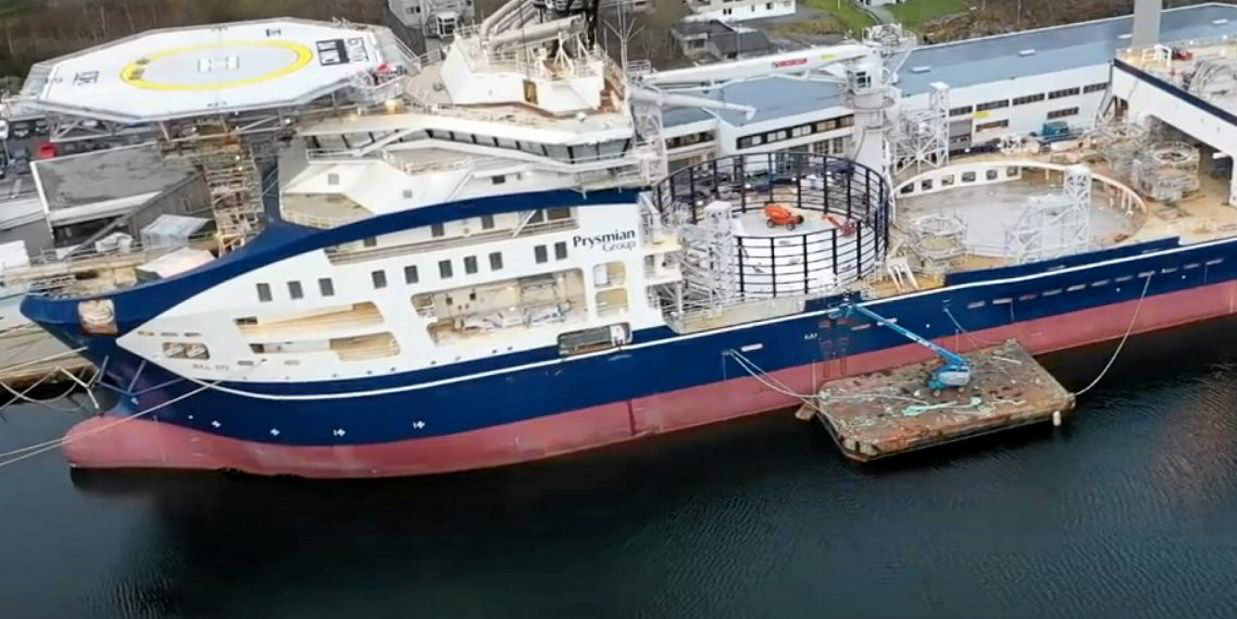Italian telecommunications contractor Prysmian Powerlink could face "exemplary" damages after a UK High Court ruled it had used a Norwegian company's cable-layer design to save money on a newbuilding at shipbuilder Vard.
Prysmian took delivery of the 170-loa cable-layer Leonard Da Vinci this year from the Norwegian yard group.
The Italian company had contracted Salt Ship Design to exclusively design the newbuilding in 2017 for a price that eventually rose to €2.43m ($2.8m).
Vard Design lost out on this tender, but the group won the newbuilding contract in 2018, and Salt no further played an active part in the project.
Salt later claimed for breach of contract and then widened this to a claim for misuse of its intellectual information.
The designer claims Prysmian and Vard, which was not a party to the UK High Court case, used its work to shave about €5m ($5.8m) off the €160.275m newbuilding cost.
This price came down to €154.565m because Vard undertook to carry out its own design work.
A Christmas miracle?
However, Salt alleges that Vard came up with a new design between 21 December 2017 and 3 January 2018, which Salt called "the Christmas miracle" due to the short time involved.
"I regard this as a bad case of breach of confidence," said Justice Richard Jacobs.
"Prysmian did engage in a blatant misuse of confidential information to facilitate an outcome where it could obtain a ship built by Vard with the benefit of the Salt design, but at a significantly lower cost," he added.
Jacobs said Salt had alleged "striking similarities" between aspects of Vard's design and its own.
"It is therefore alleged that Salt's design work was wrongly used as a springboard, with Vard piggybacking on it, and being encouraged to do so by Prysmian, so as to win the design work and cut out Salt," the judge said.
Prysmian disputes allegations

The allegations are strongly disputed by Prysmian, which argued it was entitled not to proceed with the Salt design, and did not commit a breach of contract in doing so.
The Italian company also denied that there was any improper use of confidential information.
But Jacobs found there was an intention to injure Salt in denying it its rights in its confidential information.
He said "unlawful acts" comprised the misuse of this information by Prysmian and Vard.
The judgment said that Prysmian identified at a very early stage, in January 2018, the possibility of legal issues with Salt if they proceeded down the road of the Vard design on which they had embarked.
Prepared to accept the consequences?
Jacob said Prysmian faced up to the possibility of having to pay damages for doing something which may be held to have been wrong, but nevertheless deliberately carried out its plan because it thought that it would work out satisfactorily.
"Prysmian thought that it could have the best of both worlds: a vessel that would be built by a first-class yard (favoured on all metrics apart from price), with the benefit of the work that Salt had carried out, but with a cost saving which Prysmian regarded as attractive," the judge added.
The potential remedies available for breach of confidence go beyond simply the award of compensatory damages. One possibility is for Prysmian to be required to hand over profits made by the ship, the judgment reveals.
"It is not difficult to envisage that Salt will advance a claim which exceeds the sums that it would have been paid if [the contract] had not been breached, but which is based upon or takes into account the approximately €5m saving that Prysmian gained as a result of its decision to proceed with the Vard design," Jacobs said.
Italian owner 'disappointed'
Prysmian said it was "disappointed" by the ruling.
The company added that it believed at all times it was acting within its contractual entitlements.
"Prysmian is considering appealing the intellectual property aspects of the judgment, together with all other appropriate measures to best protect its interests," the owner added.
A further hearing will be scheduled to decide on compensation.
Prysmian has annual revenue of €10bn ($11.6bn).
Vard has been contacted for comment.






